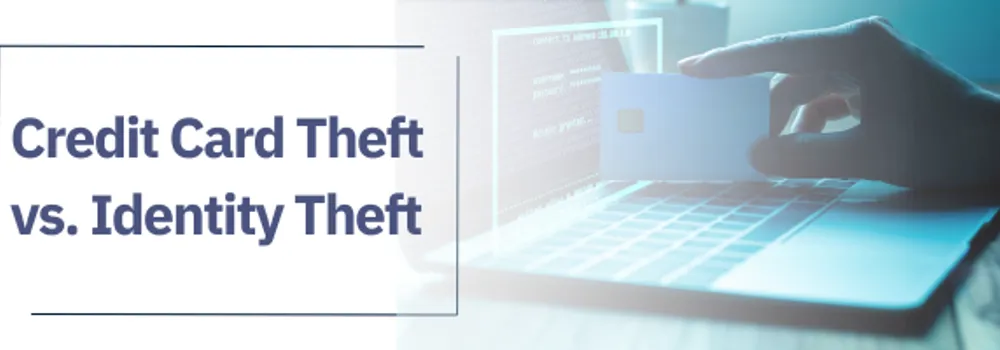
Credit Card Theft vs. Identity Theft
Understanding the key similarities and differences between financial fraud and large-scale identity theft.
If you’ve ever fallen victim to credit card theft, you understand the unease and panic it creates. You rush to contact your bank, hoping you reach a representative in time to freeze your accounts and prevent further loss. They then close your account and offer to mail a new card within a few business days.
The question remains, however, now that scammers have your credit card information, are they able to further compromise your identity? Let’s break down the key similarities and differences between credit card theft and identity theft.
Both credit card theft and identity theft are versions of financial fraud that involve someone using your financial information without your consent. Credit card theft can occur independently of identity theft though. For example, if you drop your wallet or forget your credit card at a restaurant, a thief can more easily make unauthorized purchases by obtaining (or stealing) your physical card. The thief hasn’t compromised your identity at this point, rather just seriously disrupted your finances and potentially damaged your credit score.
Digital theft is a bit more complex. Making online purchases from suspicious websites or over public Wi-Fi greatly increases your chances of theft. Scammers can intercept data and compromise your card details. Your credit card information can also be leaked during a data breach, so it can be tough to nail down whether your card was simply stolen or if the unauthorized charges are indications of a larger, more serious theft issue.
After taking the necessary steps to report credit card fraud, check out your other accounts to uncover any discrepancies. Do the balances in your savings, retirement and checking accounts appear normal? Do your medical and other insurance bills show any inconsistent charges? Identity thieves seek to disrupt nearly all of your accounts and use your identity to make large purchases, secure loans, create fake accounts and more. In these instances, a thief has compromised your SSN and as a result has gained access to your financial records.
Overall, while credit card theft and identity theft are not always correlated, it is a good idea to treat credit card fraud as a potential indicator of greater theft. Monitoring credit reports and daily usage summaries are great habits to adopt as they allow you to more quickly identify instances of theft. In addition to reporting the fraud to your financial institution, be sure to contact the Federal Trade Commission to report suspicions of identity theft if other inconsistencies arise.